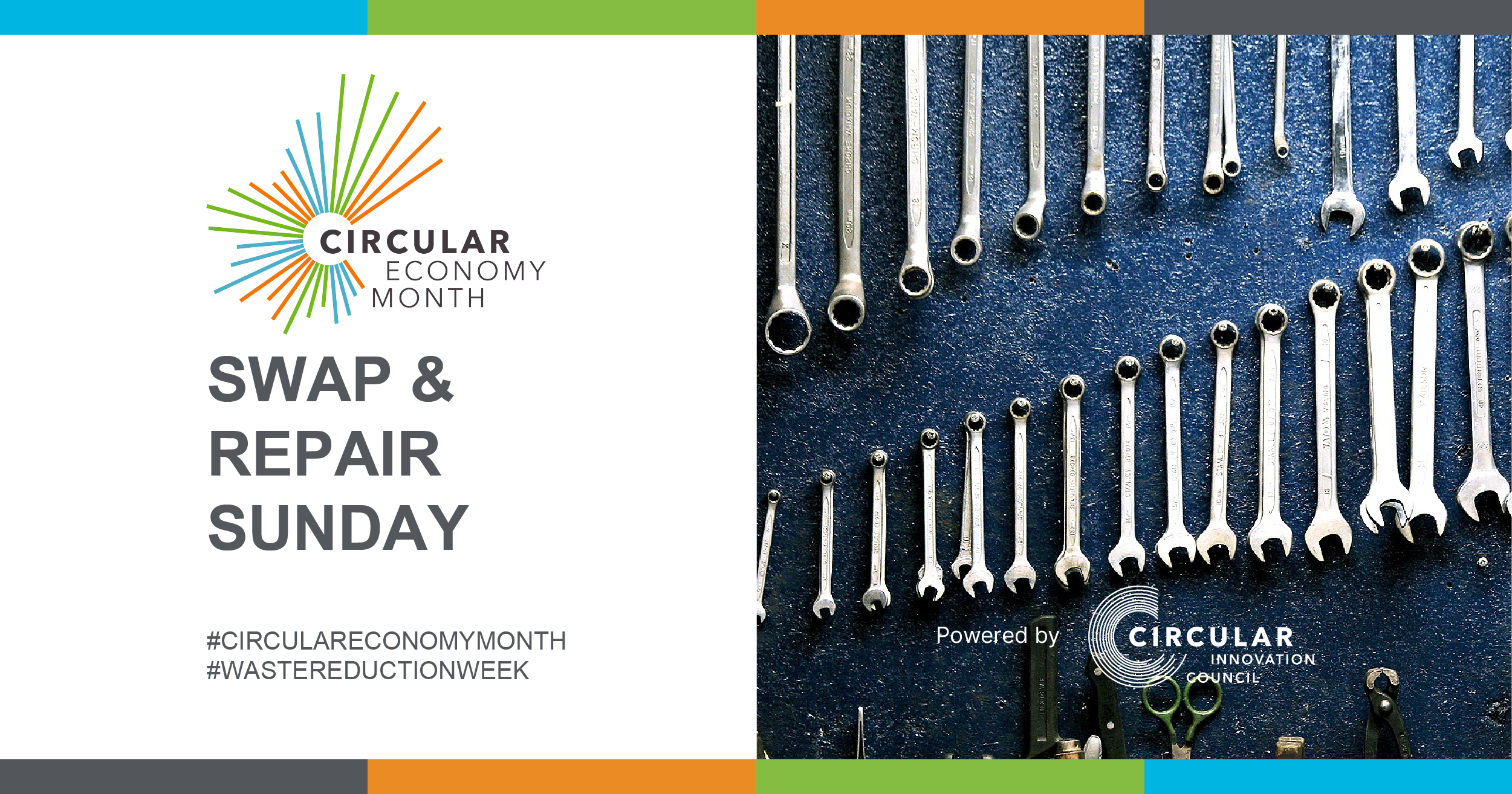Waste Reduction
Every day of Waste Reduction Week in Canada has a theme to engage Canadians on key waste management issues of the circular economy.
Circular Economy Monday
There are lots of easy ways individuals can help advance the circular economy:
- Share
A circular economy supports the idea of access over ownership. Support the sharing economy by borrowing, renting, and sharing products.
- Repair
Purchase items that can be dismantled for repair. Purchase repaired and refurbished electronics. Spend time finding repair manuals and learning how to DIY. Support local repair shops.
- Reuse
Find other purposes for items instead of throwing them in the garbage. Support reuse by participating in container reuse programs, choosing reusables over single-use products, and by swapping, reselling, or donating items you no longer need.
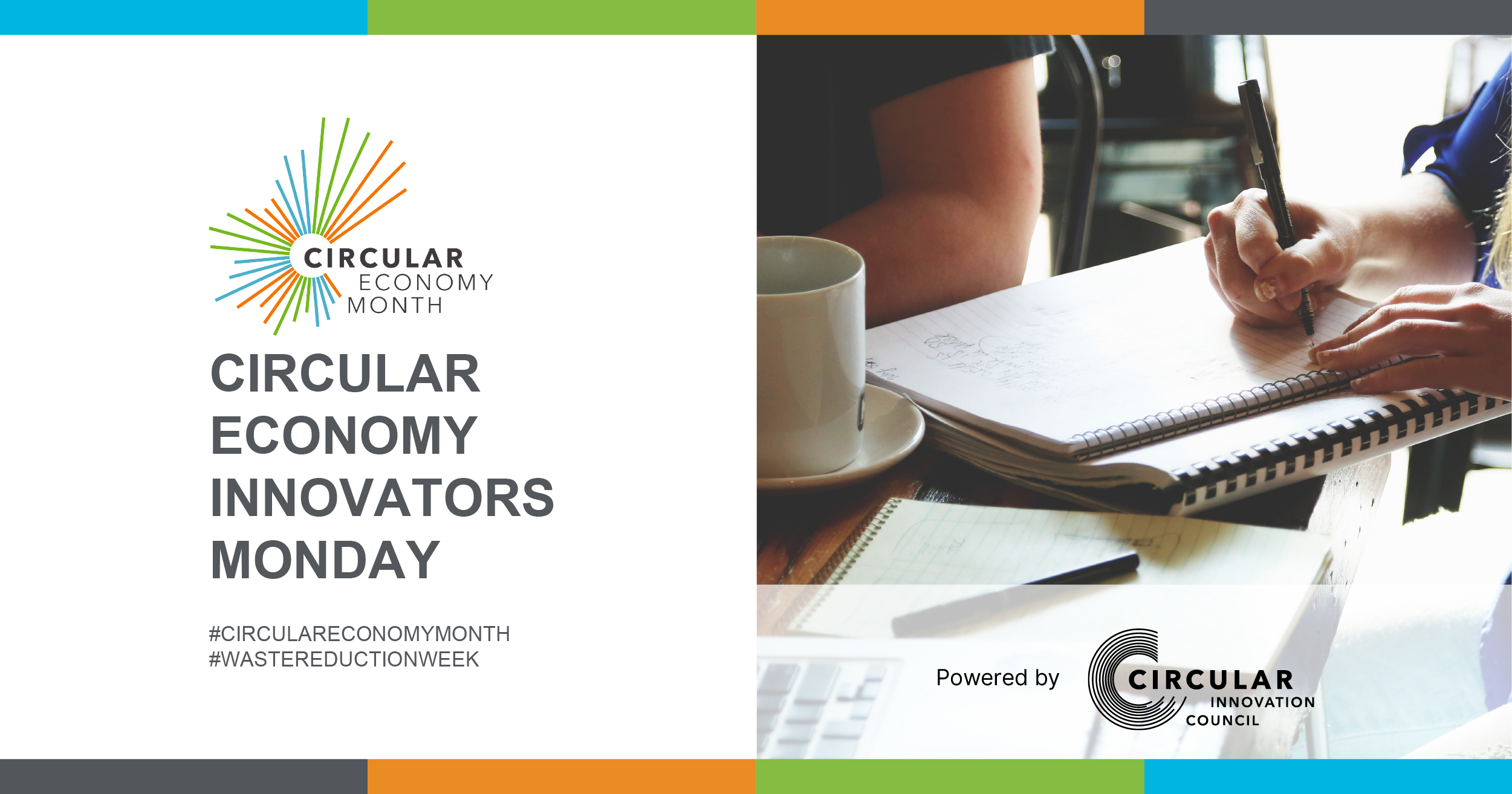
Textiles Tuesday
Did you know the average person throws away 37 kilograms (81 pounds) of textiles each year, and 95% of those clothes could be reused or recycled?
In the last 15 years, clothing production has approximately doubled and less than 1% of material used to produce clothing is recycled into new clothing.
The environmental impacts of clothing production are significant.
The textiles industry relies mostly on non-renewable resources – 98 million tonnes in total per year – including oil to produce synthetic fibres, fertilizers to grow cotton, and chemicals to produce, dye, and finish fibres and textiles.
Plastics and textiles go hand-in-hand: every time we wash synthetic materials like polyester and nylon, tiny plastic fibres break off and up to 40% of these microfibres end of as ocean plastics. By only washing what really needs to be washed we can decrease the amount of microfibres entering our waterways and materials will last longer.
Lower the negative environmental impacts of your clothing;
- Wear and use what you already own
- Repair or tailor your clothing as needed
- Reduce wear and tear by washing only when needed
- Purchase good-quality clothing and only what you need
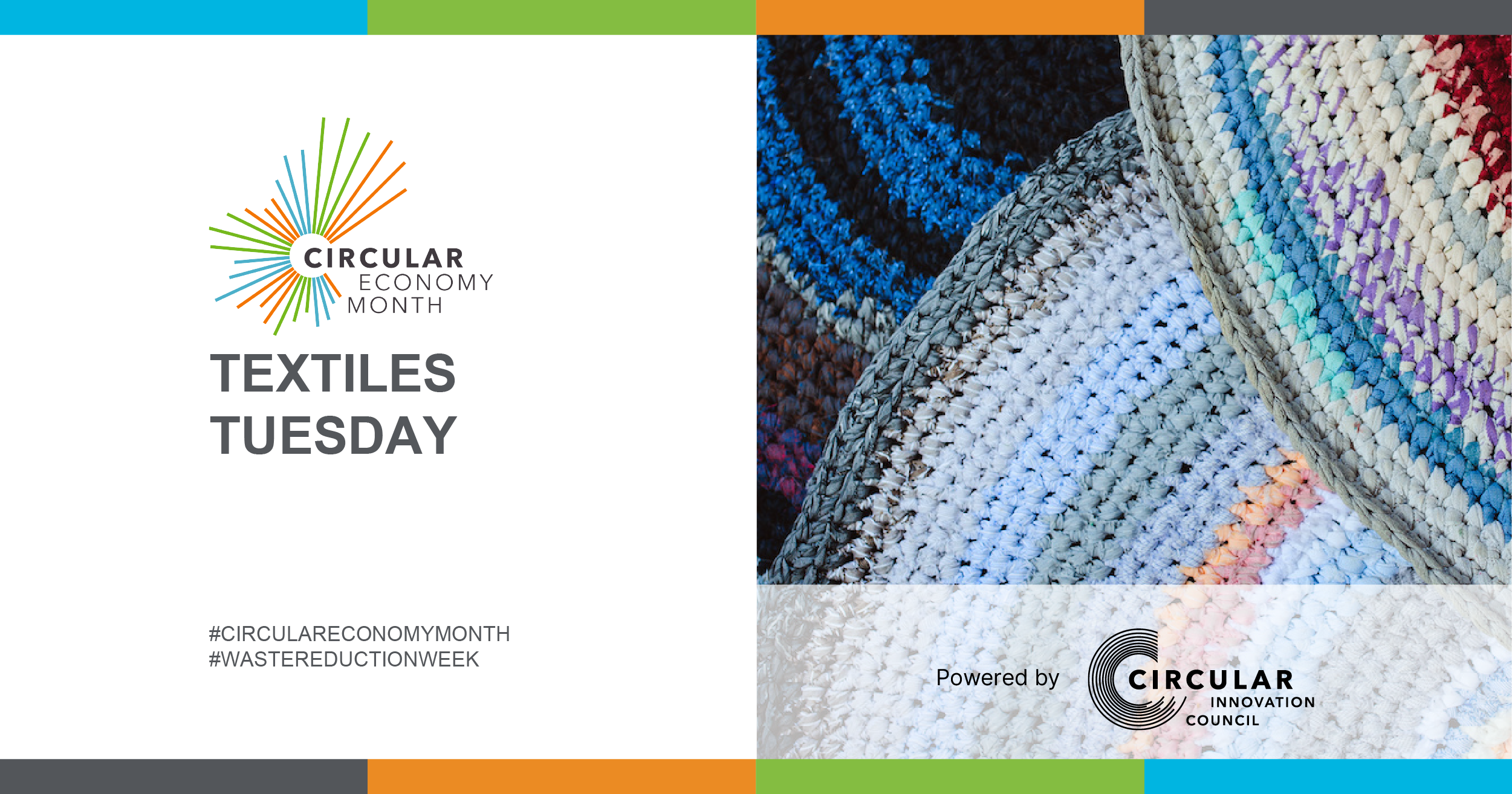 E-Waste Wednesday
E-Waste Wednesday
With such rapid advances in technology and endless new innovative products released every year, electronic waste (e-waste) is quickly becoming one of the fastest growing waste streams in the world.
The best way to reduce the impact that we have on the environment is to make sure that we use the gadgets that we already have in our pockets for as long as possible.
E-waste includes unwanted electronic equipment such as smart devices and used cables. The parts that make up your electronics such as steel, glass, copper, aluminum, plastics and precious metals can be recovered and made into new products.
When your electronic products are at their end of life, drop them off in the e-waste recycling bin at the Residential Drop Off at the Robin Hood Bay Waste Management Facility, open 8 a.m. to 4 p.m. Tuesday to Saturday.
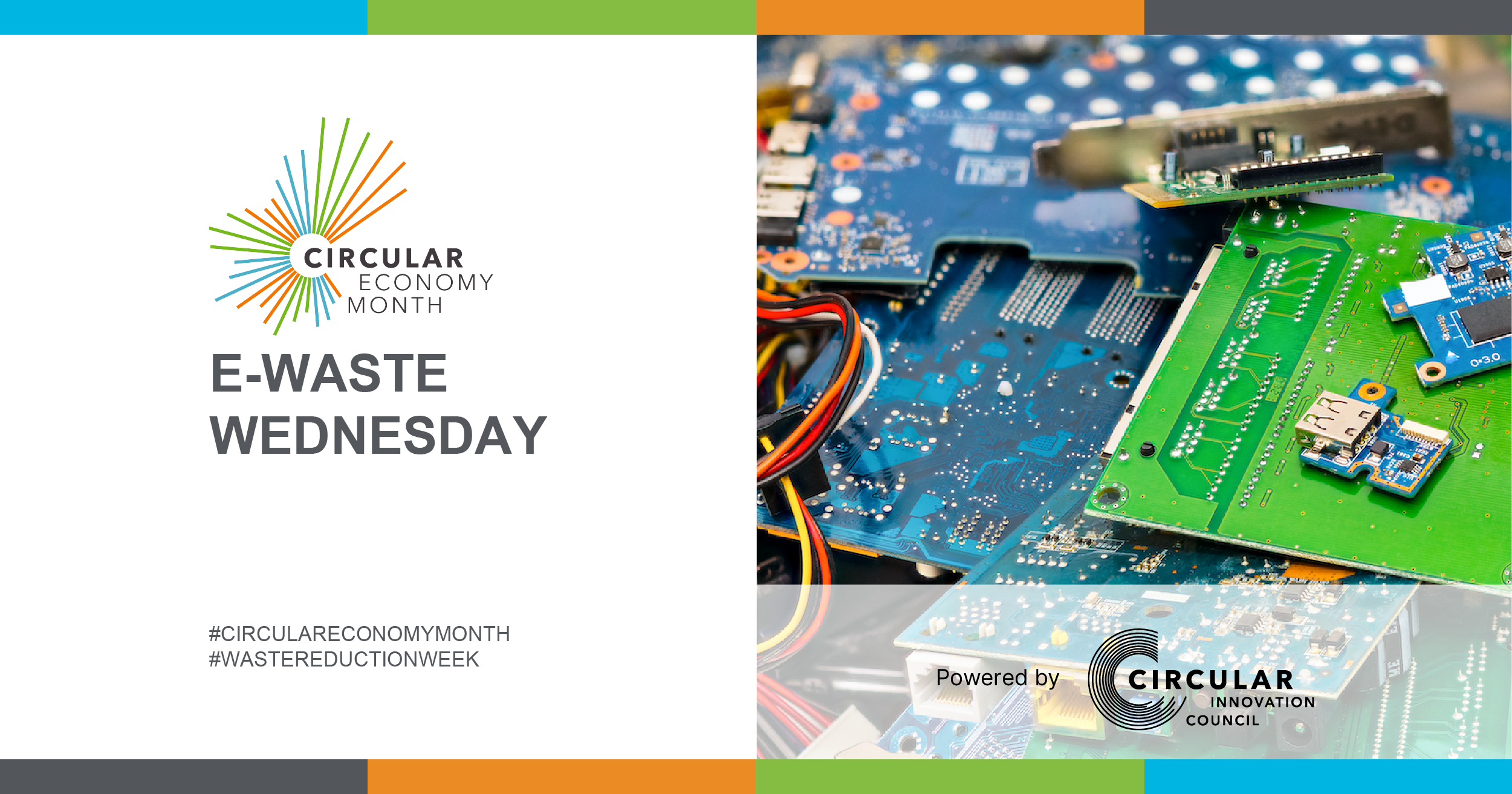
Plastics Thursday
Approximately 40% of the plastic produced each year is packaging that is used once and thrown away.
An estimated 8 million tonnes of plastic ends up in our oceans each year—that’s the equivalent of one garbage truck full of plastic every minute. By 2050, it’s estimated there will be more plastic in the ocean than fish, by weight.
Everyone has a role to play to reduce plastic waste and to tackle plastic pollution: governments, companies, the recycling industry, and individuals. The economic value of plastic lost to waste in Canada is $8 billion yearly and expected to increase to more than $11 billion by 2030.
Make simple changes in your everyday life to reduce your plastic footprint, every action counts:
- Purchase products without plastic packaging, or purchase in bulk to reduce packaging
- Use reuseable items instead of plastic disposal products, including water bottles
- Curbside recycle plastic containers that food, drink and cleaning supplies come in; recycling 1 tonne of plastics prevents up to 2 tonnes of carbon pollution.
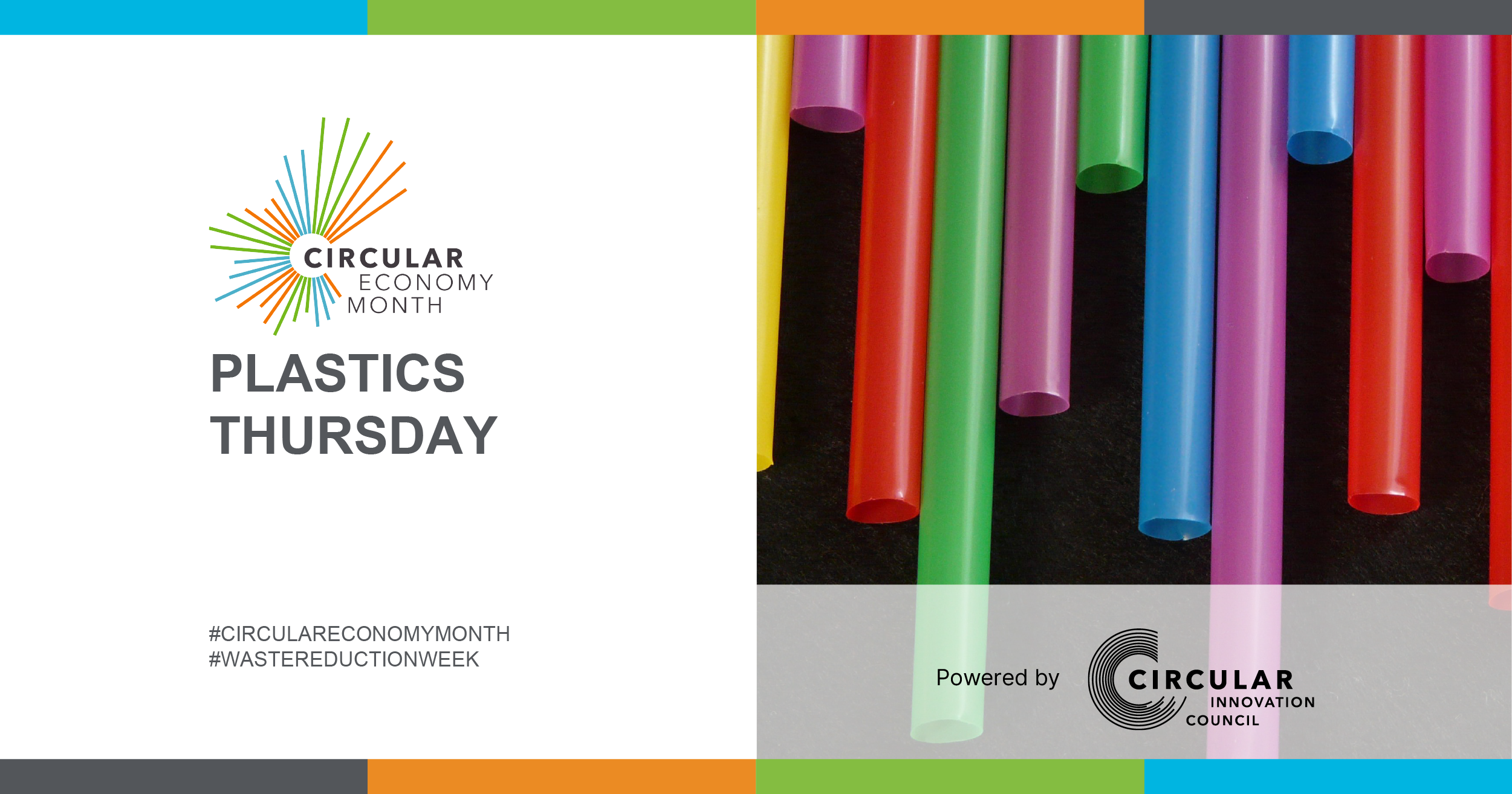 Food Waste Friday
Food Waste Friday
It’s estimated the average Canadian household wastes $1,766 (in 2019) worth of food each year.
Across Canada, 58% of all food produced is wasted – that’s 35.5 million tonnes of food waste, 32% of which is still edible. This amounts to a staggering loss of $49.46 billion in value.
And if that’s not bad enough, Canada’s food waste is equivalent to 56.5 million tonnes of carbon dioxide emissions annually.
When organic material is sent to landfill to decompose it releases methane into the atmosphere, which is a greenhouse gas 25 times more potent than carbon dioxide and is the single largest waste stream found in landfills.
Take the food waste pledge and commit to:
- planning meals and making a grocery list
- storing fruits and vegetables properly so they last longer
- getting creative with leftovers
- thinking about expiry dates
- composting leftover organics
When composted, food waste can turn into a valuable nutrient additive for soil. Consider backyard composting and learn more about the City of St. John’s backyard compost program.
 Sharing Economy Saturday
Sharing Economy Saturday
Access over ownership, and the sharing economy, are important pillars that contribute to a circular economy.
Millions of Canadians engage in the sharing economy everyday – through ride sharing apps, libraries, rental services, online music/video streaming and more – often not realizing their contribution to the circular economy.
If you own a library card you are helping advance a circular economy!
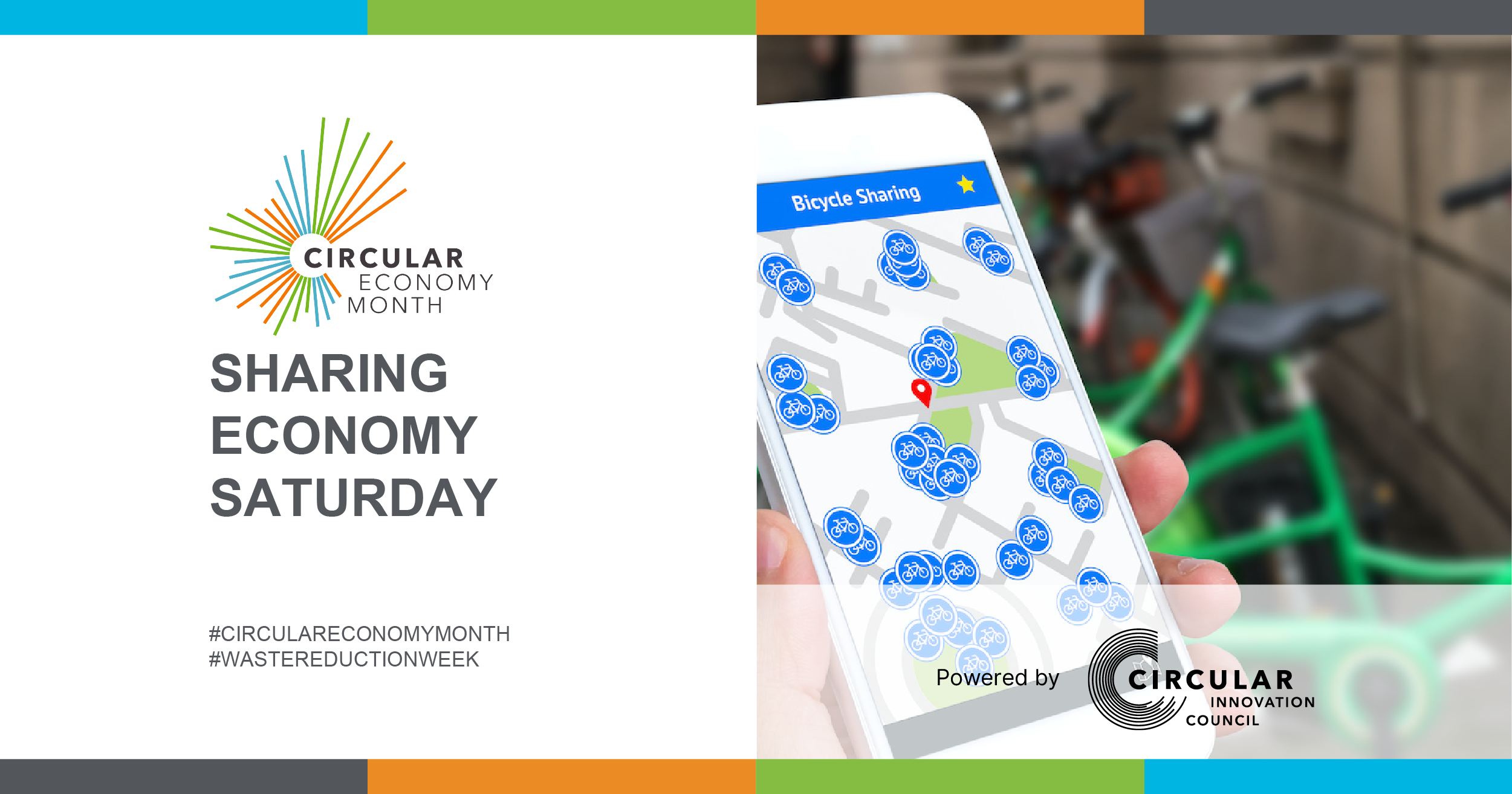 Swap and Repair Sunday
Swap and Repair Sunday
Two very simple yet important pillars to the circular economy are swap and repair. The life of some everyday products can be extended with simple repairs or reinforcement. Donating unwanted items to reuse stores or community organizations keeps items out of landfill and in the hands of those who need them.
In St. John’s gently-used furniture and other household items can be shared for reuse in the community through several community organizations, including Home Again Furniture Bank and Habitat for Humanity ReStore. To divert useable furniture and household items from the landfill there is a Furniture ReUse bin in the Residential Drop Off at the Robin Hood Bay Waste Management Facility, open 8 a.m. to 4 p.m. Tuesday to Saturday.
